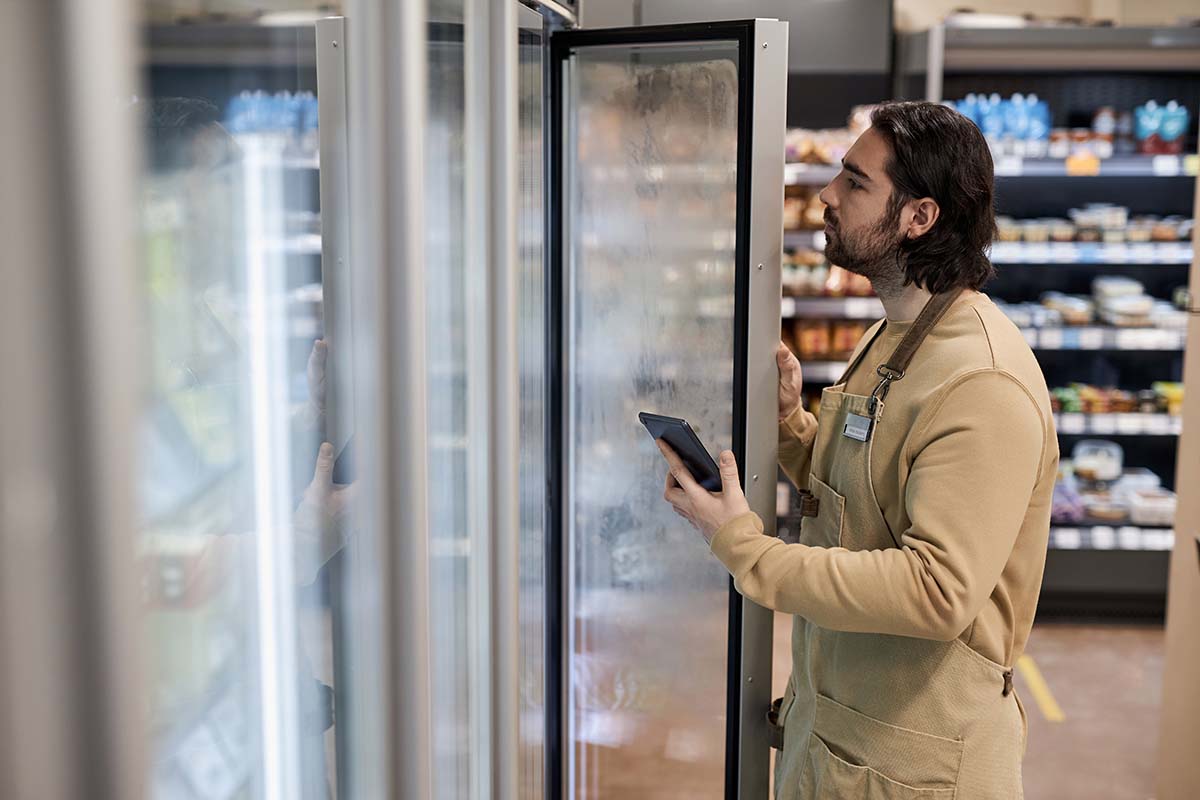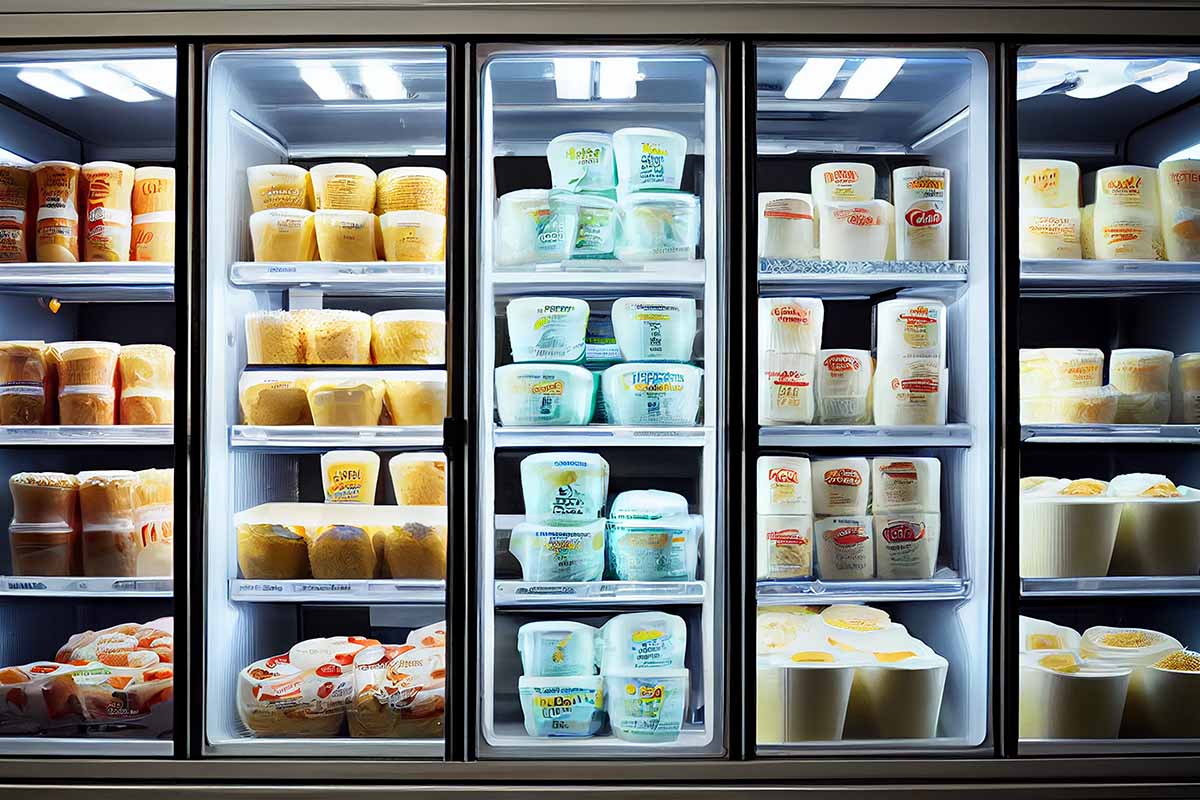Signs Your Commercial Refrigerator Needs Immediate Repair
Key Points
- Unusual Noises Signal Trouble: Loud humming or clanking noises in commercial refrigerators can indicate issues with internal components, requiring immediate attention to prevent severe problems.
- Temperature Fluctuations are Risky: Inconsistent temperatures can spoil food and violate safety regulations. This could stem from a malfunctioning thermostat or blocked vents, needing prompt repair.
- Excessive Frost or Ice Build-Up: Too much frost or ice indicates defrost system issues or blocked airflow. This not only wastes energy but can lead to larger, more costly repairs if not addressed quickly.
Keeping a commercial refrigerator in top-notch condition is crucial for any business that relies on cold storage, whether it’s a restaurant, grocery store, or any other establishment.
A malfunctioning fridge can lead to spoiled food, lost revenue, and even health code violations. So, how can you tell when your commercial refrigerator needs immediate repair? Let’s explore the tell-tale signs that shouldn’t be ignored.
Unusual Noises – The Symphony of Trouble
Commercial refrigerators are designed to run quietly in the background, so when they start making strange noises, it’s often a sign that something is amiss.
If you hear loud humming, buzzing, or clanking, it could indicate issues with the compressor, fan, or another internal component.
These sounds can escalate quickly, leading to more severe problems if not addressed promptly.
The next time you hear your fridge making a racket, it’s time to call in an expert for professional commercial refrigeration repair.
Temperature Fluctuations – A Risky Rollercoaster
One of the most critical functions of a commercial refrigerator is maintaining a consistent temperature to keep food fresh and safe.
If you notice that your fridge isn’t holding a steady temperature or that it’s warmer than usual, this could be a major red flag.
Temperature fluctuations can result from a malfunctioning thermostat, blocked vents, or failing insulation.
These issues not only risk food spoilage but also violate food safety regulations.
Keep an eye on the temperature gauge, and if things start to go awry, it’s time for a repair.
Excessive Frost or Ice Build-Up – The Frozen Dilemma
While some frost inside a commercial refrigerator can be normal, excessive ice build-up is not.
This issue can occur in both the freezer and the refrigerator sections. Excessive frost might indicate problems with the defrost system, such as a faulty heater or timer.
Ice build-up can also block airflow, causing the unit to work harder and consume more energy. If you find yourself chipping away at ice more often than not, it’s a sign that your refrigerator needs professional attention.
Leaking Water – The Puddle Problem
Finding water puddles around your commercial refrigerator is never a good sign. Leaks can result from a variety of issues, such as a clogged drain hose, a faulty seal, or a broken water line.
Besides the obvious mess, water leaks can lead to more serious problems like mold growth and electrical issues. It’s essential to address any leaks immediately to prevent further damage and potential health hazards.
Food Spoilage – The Costly Consequence
One of the most direct indicators that something is wrong with your commercial refrigerator is if food is spoiling faster than it should.
If your inventory is going bad before its expiration date, it might be due to inadequate cooling, which could stem from various internal issues.
Spoiled food not only represents a loss in revenue but can also tarnish your business’s reputation if customers are affected. If you notice this pattern, it’s crucial to have your fridge inspected and repaired.
Increased Energy Bills – The Silent Drain
A sudden spike in your energy bills might be linked to your commercial refrigerator working overtime.
If the unit is struggling to maintain the right temperature, it might be running more frequently or for longer periods, consuming more electricity.
This inefficiency can result from issues like dirty condenser coils, a malfunctioning compressor, or poor insulation.
Keeping an eye on your energy costs can help you catch these problems early on.
Visible Condensation – The Foggy Warning
If you notice condensation inside your commercial refrigerator or on the exterior glass, it could indicate a problem with the door seals or gaskets.
These components are crucial for maintaining the internal temperature and keeping warm air out.
When seals are damaged or worn out, it can lead to moisture build-up, which can, in turn, promote mold growth and food spoilage.
Regularly inspecting and maintaining seals can help prevent these issues.
Compressor Issues – The Heartbeat of Your Refrigerator
The compressor is like the heart of your commercial refrigerator, pumping refrigerant through the system.
If it’s struggling, you might notice your fridge cycling on and off more frequently than usual or running continuously.
Compressor issues can lead to inadequate cooling and increased energy consumption.
If you suspect a problem with the compressor, it’s vital to get it checked out quickly to avoid a complete breakdown.
Preventative Maintenance: The Key to Longevity
While recognizing these signs is crucial, the best way to ensure the longevity of your commercial refrigerator is through regular maintenance.
Here are a few preventative measures to keep your unit in optimal condition:
- Clean condenser coils – Dirty coils can cause the fridge to overheat and operate inefficiently.
- Check door seals – Ensure that the gaskets are intact and seal properly to prevent air leaks.
- Regular inspections – Schedule professional inspections at least twice a year to catch potential issues early.
Knowing When to Replace
Sometimes, even with the best maintenance, a commercial refrigerator may reach the end of its lifespan.
If your unit is old and frequently needing repairs, it might be more cost-effective to replace it. Newer models are often more energy-efficient, which can save you money in the long run.
Final Thoughts: Keeping Cool Under Pressure
Maintaining a commercial refrigerator isn’t just about keeping your products cold; it’s about protecting your business and your customers.
Recognizing the signs of trouble and addressing them promptly can save you from costly repairs and potential losses. Remember, when in doubt, it’s always best to consult with a professional to ensure your equipment is running smoothly.
In the end, a well-maintained refrigerator is a reliable partner in your business’s success.
So, keep an ear out for strange noises, an eye on the temperature, and don’t hesitate to take action at the first sign of trouble.
Your commercial refrigerator is more than just a piece of equipment; it’s a crucial part of your operation’s success.
Keep it in top shape, and it’ll keep your business running smoothly.



















